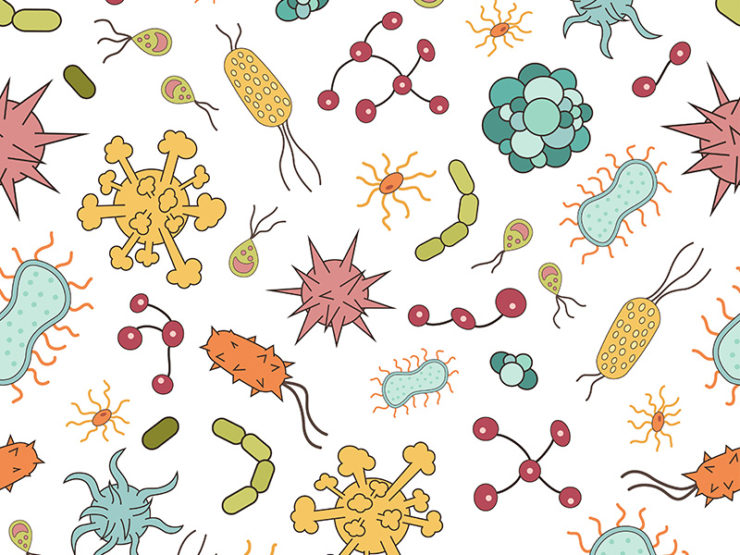
Reading Time: 1.5 Minutes
This is the tenth in a series of posts about depression and more importantly, how we can take steps to hopefully keep it under control.
After I was diagnosed with depression, I was convinced I could limit both the frequency of my ‘bad’ days, and also the severity of those days. I researched everything I could about how other sufferers deal with their condition, and listed all the advice I thought could work for me. This resulted in fifteensteps, which I’m covering over fifteen weeks, and this is number ten.
Step 10 – Bacteria is Good!
AKA – Improve Gut Health
Excuse the pun but I’ve decided to look after my stomach bacteria. Don’t know why, just a gut feeling!
This point was a late addition to my regime, and I only became aware of the advantages recently. It’s receiving a lot of attention, and rightly so.
The gastrointestinal tract is home to a host of microbes collectively known as the microbiome, and the highest concentration is in the gut. Broadly, there are two types of bacteria present: good and bad.
Scientific research claims we’re not getting enough of the good variety, and too much of the bad, which can cause problems from weight gain to a weakened immune system, poor skin condition, and – wait for it – a decline in mental health.

Inadequate nutrition, such as too many highly processed foods, alcohol, caffeine, sugar, and artificial sweeteners, weaken the microbiome.
Eating healthier food and incorporating more sources of good bacteria can help. There are two types of these foods: prebiotic and probiotic. Probiotics contain the good bacteria themselves, and prebiotics are foods that nourish them.
Probiotic yoghurts have been in the supermarket chiller section for years. Others include fermented foods such as sauerkraut, kimchi, kombucha (I hadn’t heard of most of them either), some cheeses, and apple cider vinegar.
It’s important when considering fermented foods to not buy the pasteurised kind. All pasteurisation does is kill off the good bacteria, which is the food industry’s way of getting rid of anything they think could harm you. Ironic isn’t it? These foods are great for your gut health, but because they contain that terrible word bacteria, the food industry must err on the side of caution, and the law, and pasteurise them.
Some people need to be careful when consuming them, for example those who are pregnant.
Prebiotics – which I liken to fuel for the probiotic – feed the good bacteria and keep them healthy. Prebiotic is dietary fibre. Major sources are chicory root, dandelion greens, Jerusalem artichokes, garlic, onions, leeks, asparagus, bananas, and oats. Eat raw if possible; cooking can reduce the benefits but is inescapable for foods such as Jerusalem artichokes.
To sum up, introduce probiotics to top up with good bacteria, then feed them prebiotics.
Next Week
Step 11 – Toxic Friendships
AKA – Remove the Negatives
You can read about my hike across Scotland, while coming to terms with the fact I had depression, in my latest book – High and Low. Just click on the image for details.
